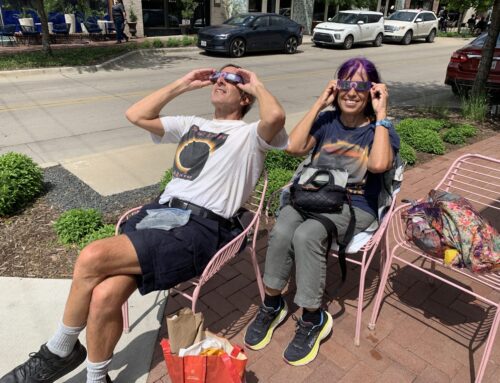The reform superintendent has skipped town.
The board of trustees can’t quit fighting.
Teachers and principals are exiting by the hundreds.
Despite all this, many parents are taking a second look at neighborhood schools — and for good reasons.
Magnet schools have reigned supreme in Dallas ISD for decades. Formed as equalizers in the days of desegregation, the schools have evolved into a great source of pride for the district. How many years running has the Townview Talented and Gifted School been named one of the top high schools in the country by U.S. News and World Report?
A funny thing happened, however, over the last year or so. The district still sent out its annual press release lauding the TAG school and its other magnets on the list of the nation’s best. But “choice school” has begun to supplant “magnet” in the DISD lexicon.
Choice schools are different, first of all, from “school choice,” which evokes a reference to “people who want to use my tax money so they can subsidize their kid’s education in the Radio Church of God,” writes Dallas Observer columnist Jim Schutze.
They’re also different from magnet schools in a slight but significant way: Choice schools don’t have academic entrance requirements. They may give students priority based on vicinity, but IQ, grades, talent, references and the like are not part of the application process.
So more than 40 years after its schools desegregated, it appears that Dallas is attempting to level the playing field once again.
Though choice schools were championed by recently resigned Superintendent Mike Miles, the concept didn’t initiate with him. It’s been practiced in Dallas ISD for years, in fact. The idea is for a school to have some sort of unique offering that attracts students and their families, giving them a choice beyond the neighborhood school to which they are zoned.
This isn’t too different than the criteria already used for in-district transfers. Historically, parents could cite something a school offers — Rosemont Elementary’s dual language program, for example — as a reason their child should attend a more desirable school. It was a way to escape an unpopular campus. Conversely, the choice school movement propels families toward a school rather than away from one.
Officially, Dallas ISD has designated only a handful of choice schools, and none of them are in our neighborhood. That could change soon, however. Any school in the district is invited to build a team, develop a choice program, and apply to be an “innovation” school. The few getting off the ground next year are mostly personalized learning campuses, plus a science, technology, engineering and math (STEM) academy for young women.
The district also hopes to turn its existing, vacant campuses into “transformation” schools, taking their bones and infusing them with a new purpose. The historic Adamson High School building could be one of these; a proposed Dallas ISD bond package includes $11 million to make it a choice school.
“It’s our building, it has a historical designation, it’s not going anywhere, so it makes sense to explore some options,” says Mike Koprowski, Dallas ISD chief of innovation and transformation.
What kind of school it would become depends entirely on the applications that land on Koprowski’s desk by Sept. 1.
“There’s uncertainty to it, but that’s sort of the beauty of it,” he says. “If we’re going to be an innovative organization, we’re going to have to be OK with a little bit of uncertainty.”
Choice schools are Dallas ISD’s response to the city’s proliferation of private schools, the more recent emergence of charter schools, and the underlying funding threat of “school choice” legislation driven by people dissatisfied with public school options. Choice schools add more options to the mix, and the response — such as more than 400 applications for 100 spots in the district’s personalized learning high school, its inaugural year — seem to confirm that options are what we want.
Never mind that Miles has skipped town. Principals have latched on, and parents too, are jumping on the choice school bandwagon. Interim Superintendent Michael Hinojosa, who held the job for six years before Miles assumed it, has vowed to continue the effort.
As if he had a choice.






